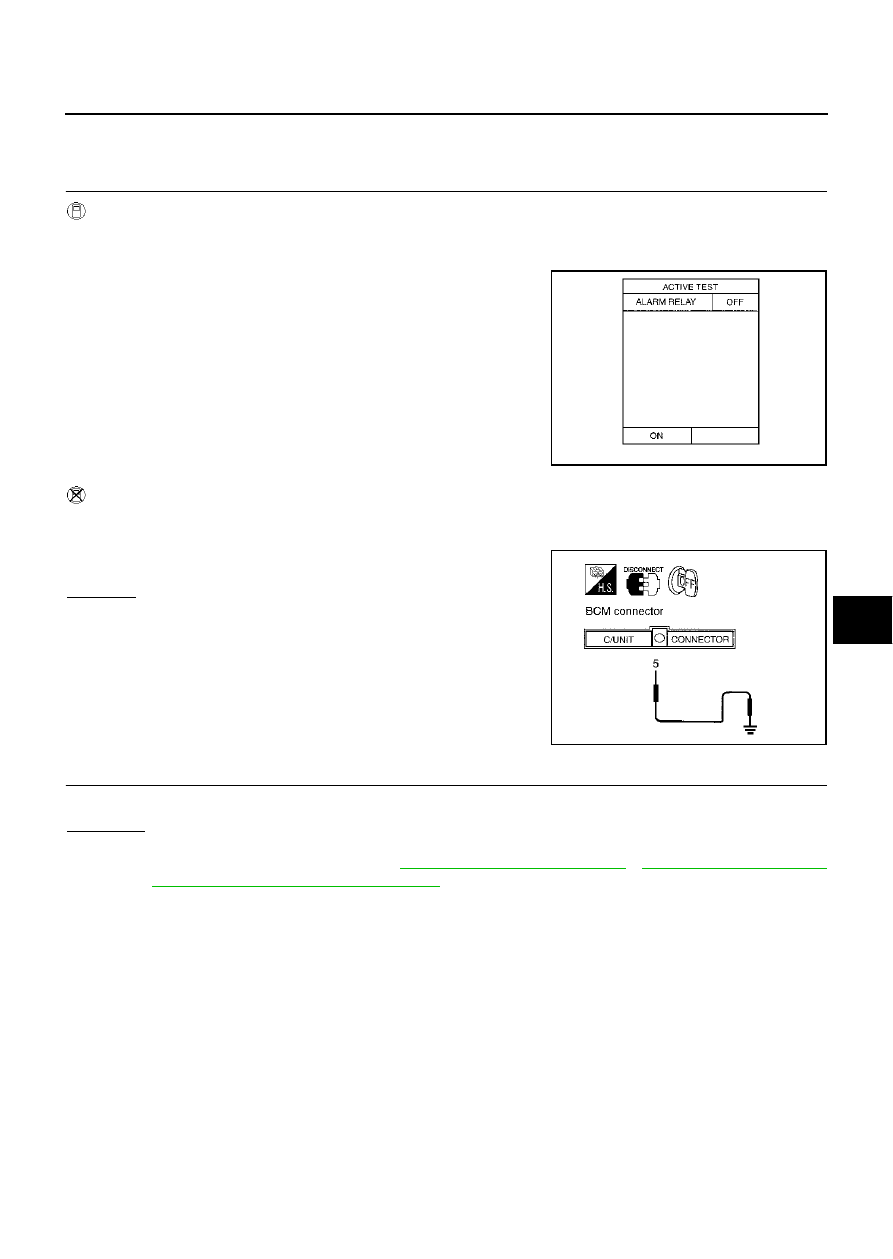Infiniti F50. Manual - part 234

VEHICLE SECURITY (THEFT WARNING) SYSTEM
BL-183
C
D
E
F
G
H
J
K
L
M
A
B
BL
Diagnostic Procedure 7
EIS003QH
CHECK THEFT WARNING HEADLAMP ALARM
1.
CHECK VEHICLE SECURITY HEADLAMP ALARM OPERATION
With CONSULT-II
●
Check headlamp relay “ALARM RELAY” in “ACTIVE TEST” mode with CONSULT-II.
●
Perform operation shown on display.
Without CONSULT-II
1.
Disconnect BCM connector.
2.
Apply ground to BCM connector M4 terminal 5 (R/Y).
OK or NG
OK
>> Headlamp alarm is OK.
NG
>> GO TO 2.
2.
CHECK HEADLAMP RELAY 1 AND 2
Does headlamp come on when turning lighting switch “ON”?
YES or NO
YES
>> Check harness for open or short between each headlamp relay and BCM.
NO
>> Check headlamp system. Refer to
CANADA) - DAYTIME LIGHT SYSTEM -"
Theft warning headlamp alarm should operate.
PIIA0362E
Does headlamp alarm activate?
PIIA0363E